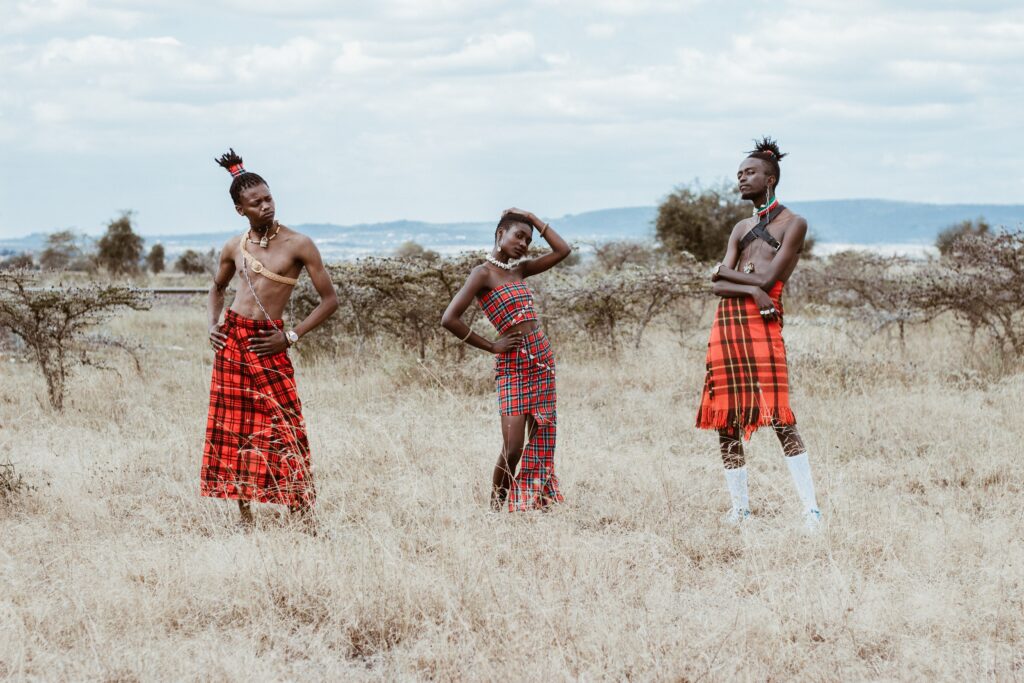Black culture refers to the diverse range of customs, traditions, beliefs, practices, art forms, languages, and social behaviours that have emerged from the experiences and contributions of people of African descent. It encompasses the shared experiences, history, and identity of Black people, which have been shaped by their interactions with various societies, including Africa, the Americas, the Caribbean, and Europe.
Black culture is not monolithic but rather consists of a rich tapestry of distinct ethnic, regional, and national identities. It encompasses a wide range of elements, including:
1. History and Heritage: Black culture is rooted in the historical experiences of African people and their descendants, including the legacies of slavery, colonialism, and the civil rights movement. It celebrates the resilience, strength, and achievements of Black individuals and communities throughout history.
2. Language and Vernacular: Language plays a crucial role in Black culture. African languages, creoles, and dialects have influenced and continue to shape the linguistic landscape of Black communities worldwide. Additionally, unique forms of expression, such as African American Vernacular English (AAVE), have emerged as a distinct linguistic style.
3. Music, Dance, and Art: Black culture has had a profound impact on music, giving birth to various genres such as jazz, blues, gospel, R&B, hip-hop, reggae, and Afrobeat. Dance forms like jazz, tap, hip-hop, and various African traditional dances also play a significant role in Black cultural expression. Black artists have made substantial contributions to visual arts, literature, theatre, and film as well.
4. Religion and Spirituality: Black culture encompasses a wide range of religious and spiritual practices. These include Christianity (with its unique expressions like Black churches), Islam, traditional African religions, Rastafarianism, and various syncretic belief systems that combine elements from different traditions.
5. Cuisine: Black culture has a diverse culinary heritage that reflects the fusion of African, European, and Indigenous culinary traditions. It includes dishes like soul food, Creole cuisine, Caribbean cuisine, and various regional African cuisines, each with its distinct flavours and ingredients.
6. Fashion and Style: Black culture has had a significant influence on fashion and style, with African-inspired prints, hairstyles, and clothing gaining global recognition. From traditional African attire to contemporary urban fashion, Black individuals have made substantial contributions to the world of fashion.
7. Community and Social Activism: Black culture emphasises community, solidarity, and social justice. It encompasses collective values, traditions, and social structures that promote unity, mutual support, and resilience in the face of adversity. Black culture has been instrumental in driving social movements and activism, fighting against racial injustice and promoting equality.

Black culture is not a static entity but evolves, adapting to new influences, contexts, and generations. It is diverse, complex, and constantly evolving, shaped by the intersections of race, ethnicity, nationality, and individual experiences within the broader Black diaspora. The importance of Black culture lies in its significant contributions to the world in various realms, as well as its role in fostering a sense of identity, resilience, and empowerment among Black individuals and communities. Here are some key reasons why Black culture is important:
1. Identity and Self-Expression: Black culture provides a framework for Black individuals to connect with their heritage, history, and collective identity. It serves as a source of pride, self-expression, and affirmation, allowing individuals to celebrate their unique cultural experiences and challenge negative stereotypes.
2. Cultural Diversity and Enrichment: Black culture is incredibly diverse, encompassing a wide range of ethnicities, languages, and traditions. This diversity adds vibrancy, creativity, and new perspectives to the global cultural landscape, enriching the overall human experience.
3. Historical Legacy and Resilience: Black culture carries the weight of a complex and often painful history, including the struggles against slavery, colonisation, and systemic racism. It serves as a testament to the resilience, strength, and resistance of Black communities, honouring the achievements and contributions of those who came before.
4. Artistic and Intellectual Contributions: Black culture has made immense contributions to various artistic fields, such as music, literature, visual arts, dance, and theatre. Black artists, writers, musicians, and intellectuals have created works of enduring beauty, creativity, and social commentary that have shaped and influenced global culture.
5. Social and Political Activism: Black culture has played a pivotal role in social and political movements, advocating for justice, equality, and civil rights. It has been a catalyst for change, mobilising communities and challenging oppressive systems, fostering awareness, and inspiring activism beyond Black communities.
6. Cultural Exchange and Global Influence: Black culture has not only influenced the communities in which it originated but has also had a profound impact on global culture. From music genres like jazz, blues, and hip-hop to fashion trends, language, and culinary traditions, Black culture has transcended geographical boundaries and enriched societies worldwide.
7. Building Bridges and Fostering Understanding: Black culture provides an opportunity for dialogue, mutual respect, and understanding across cultures. It helps break down stereotypes, promotes cultural exchange, and encourages appreciation for the contributions of Black communities, fostering a more inclusive and interconnected world.
The importance of Black culture lies in its ability to empower, inspire, and unify individuals and communities while contributing to the richness and diversity of human civilisation. It serves as a source of resilience, creativity, and social transformation, challenging systemic inequalities and advocating for a more just and inclusive society.












